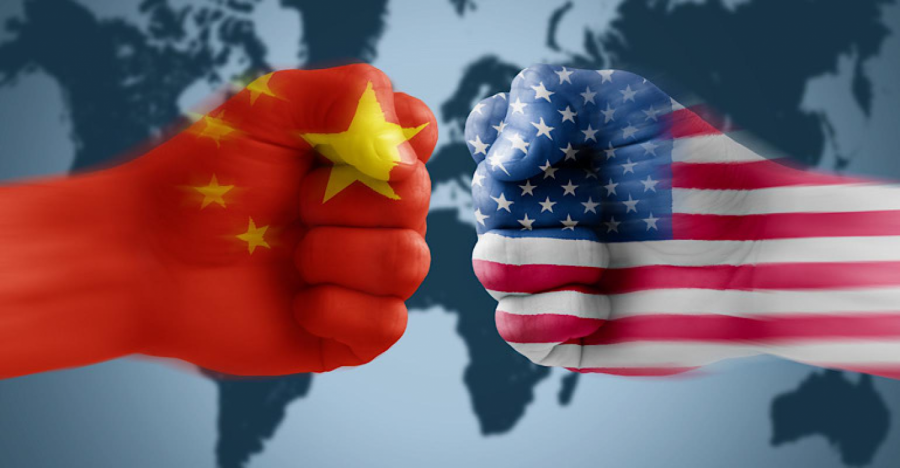“Tough on China”: Clash of Civilizations or Political Feint?
Aquir - Adobe Stock
March’s stock market fall was a glimpse of what might happen if China’s trade relations with the rest of the world collapsed.
As November approaches, all eyes are on the United States presidential election – more specifically, how Democratic nominee Joe Biden and President Trump will address the novel Coronavirus. COVID-19 has both broken and widened existing fissures within American society. While most of our economy lies in shambles, the nation’s wealthiest corporations – Amazon, Google, and Apple – enjoy growth. Mental illness and suicide rates have skyrocketed. The disproportionate suffering of Blacks and Hispanics as well as widespread acts of police brutality underscore entrenched racial discrimination. America is hurting.
Amidst this turbulence, President Trump has, characteristically, looked to deflect blame away from himself and towards a convenient enemy: China. With flagrantly racist rhetoric such as referring to COVID-19 as the “Chinese virus” or “kung flu,” the President foments deep-seated tensions between the United States and China. Trump has made an aggressive stance toward China a key point in the up-coming election. He has bashed Biden on multiple occasions for being “weak on China.” The President himself proclaimed in a press conference in August, “nobody is tougher on China than me.” In response, the Biden camp has launched attacks of their own, condemning Trump as having “rolled over for the Chinese.”
While somewhat performative, this political catfight poses a serious question: is the aggressive rhetoric from both Biden and Trump the result of a “clash of civilizations” between America and China or merely a tool for political gain? And if only the latter is true, what might the consequences be on America’s actual relationship with China?
The idea of a “clash of civilizations,” an inevitable conflict between opposed or different cultures, gained traction in the post-Cold War era. The phrase became particularly relevant during the War on Terror, in which the two “opposing” cultures were the West (America) and the Middle East (Iraq and Afghanistan). Many proponents of the clash of civilizations theory point to the Crusades as irrefutable evidence of a fundamental conflict between Western and Middle Eastern culture. In turn, many have applied this same theory to America’s relationship with China.
Superficially, the evidence seems reasonable. Proponents of the theory claim that China’s rule by the Communist Party challenges America’s capitalist roots. To subscribers of clash of civilizations theory, China and America seem diametrically opposed and destined for conflict.
However, closer examination points to a different conclusion. Ironically, COVID-19 actually proves how intertwined China and the United States are. When China, the backbone of the world’s manufacturing, shut down in February, the world suffered from a staggering supply shock. The United States was not safe from the fallout; beginning in late February, the U.S. stock market went into freefall, plummeting to levels comparable to that of the Great Recession and ultimately blowing past them. America’s second quarter GDP fell by 33%, the worst dip in over a century. And, contrary to the beliefs of many Americans, the crashes occurred before any stay-at-home orders were mandated; Black Monday occurred on March 9, and Puerto Rico issued America’s first order on March 15. In short, March’s stock market fall was a glimpse of what might happen if China’s trade relations with the rest of the world collapse. Imagine the economic catastrophe if, as proponents of clash of civilizations theory suggest to be inevitable, America were to take up arms against China. Would a fight really be feasible?
Clearly, both President Trump and Biden are pandering to anti-Chinese sentiment in a feeble attempt for political capital. This has created a toxic feedback loop – the President and other high-profile officials condemn China in a bid to gain political favor, which reinforces the public’s negative view of the country and in turn motivates politicians to criticize the nation at increasingly dramatic levels.
However, the ramifications of this practice are serious. It actively undermines U.S.- China relations and may goad China into ramping up rhetoric and potentially hostile policies of its own. Zhao Lijian, spokesperson of China’s Ministry of Foreign Affairs, peddled a conspiracy theory in March that the U.S. military had secretly implanted COVID-19 into China in October. America and China subsequently tussled in a pointless, zero-sum game, which, in the midst of a pandemic, helped no one.
Our leaders must stop alienating China. They must stop using China as a bogeyman to scare supporters into voting for them. It is fine to criticise human rights infringements, such as China’s oppression of the Uyghurs, but scapegoating China sets a dangerous precedent in a pandemic. Pandemics demand cooperation, and dismissing one of the world’s most influential nations for trivial political gain is a major error. If our leaders truly wish to address COVID-19 effectively, they must stop attacking a critical ally and put the needs of the American people above their own.













